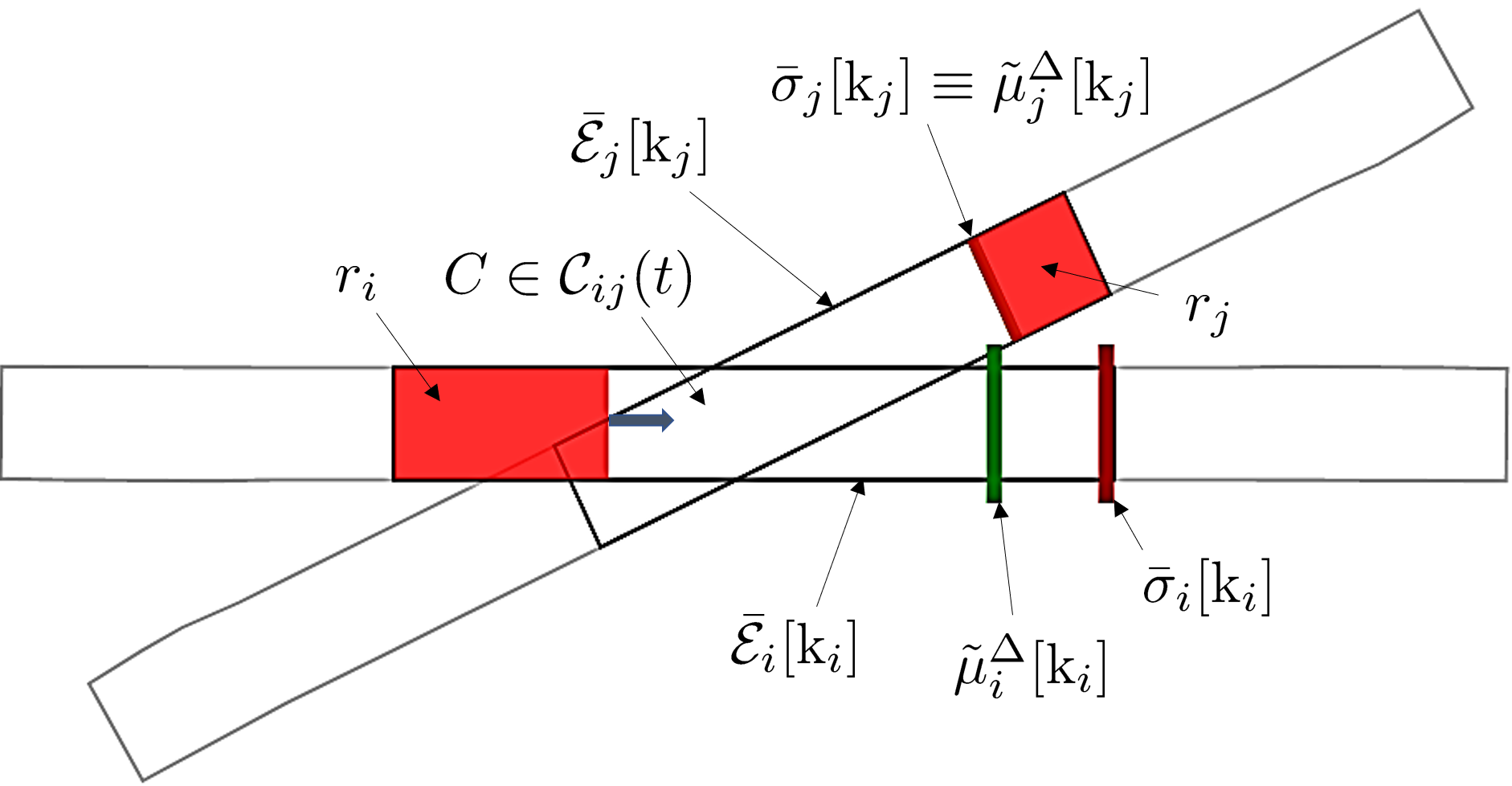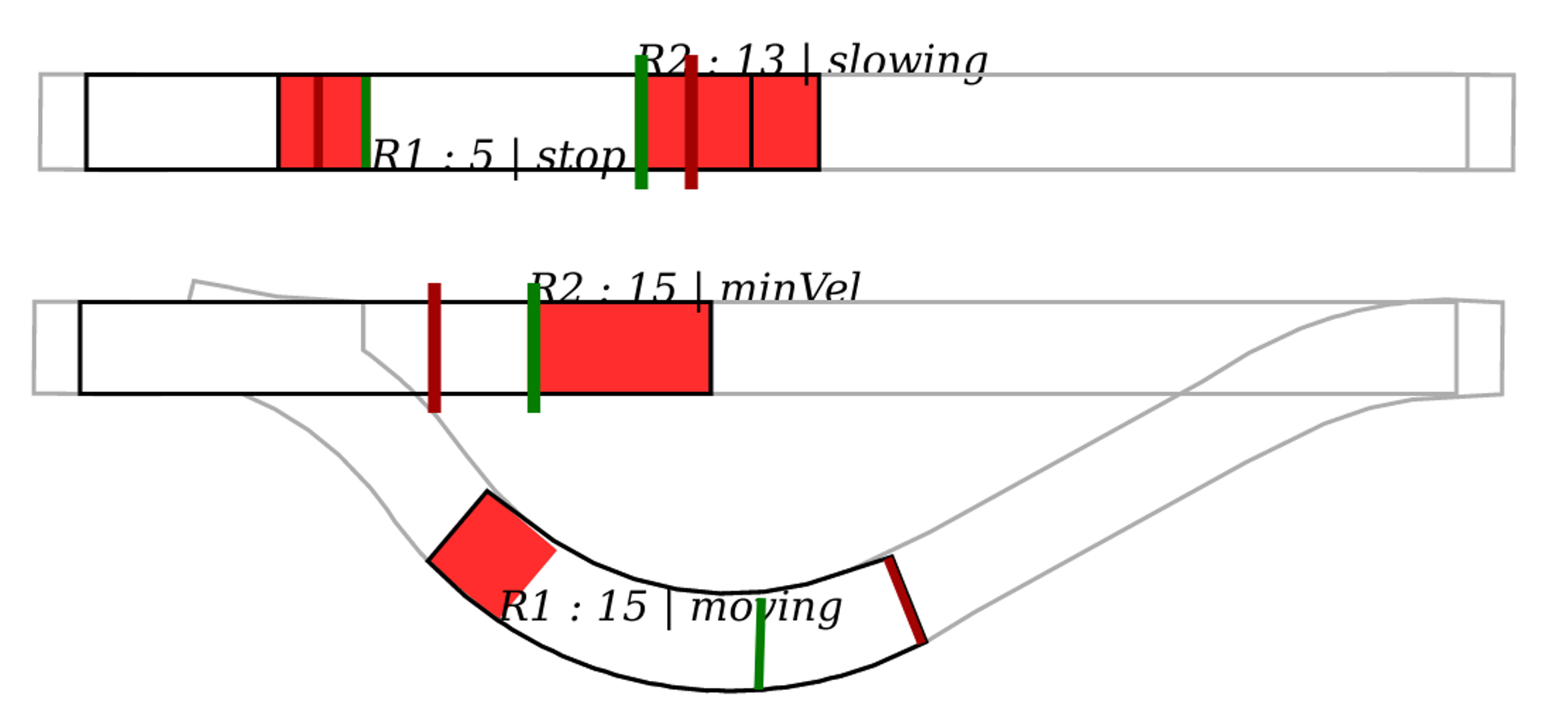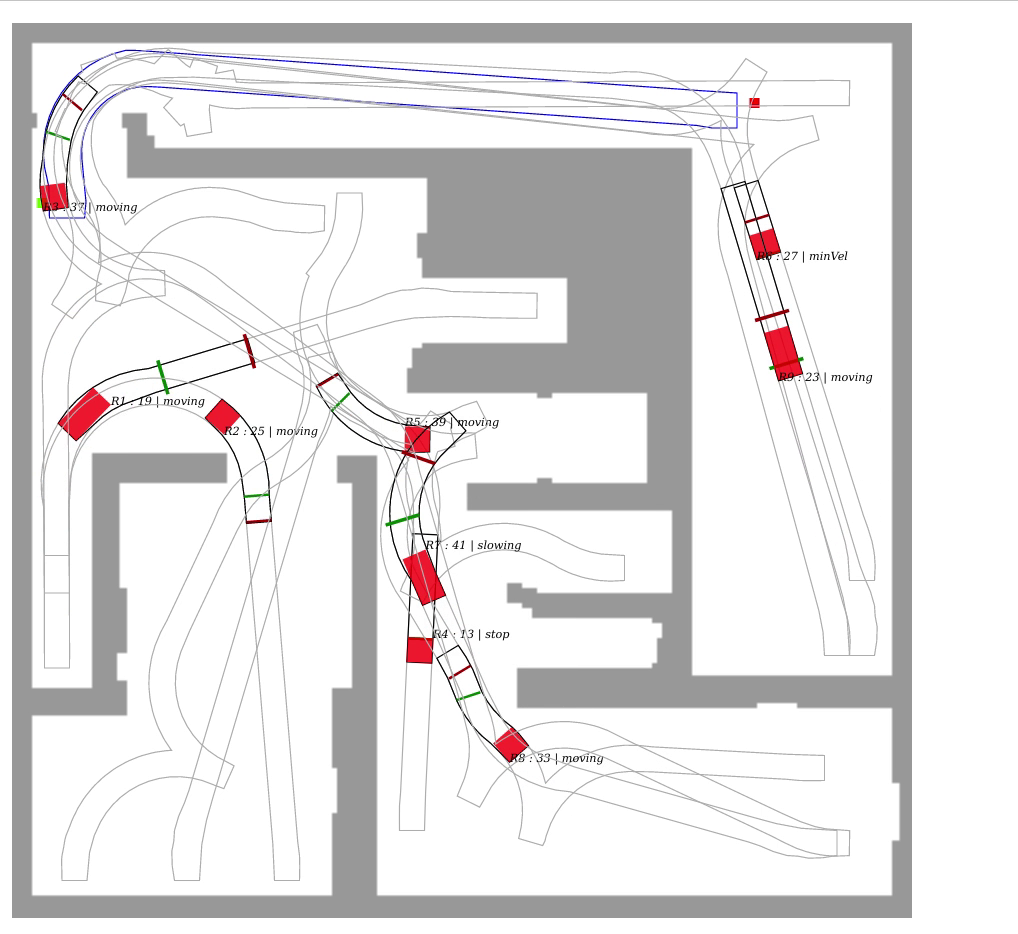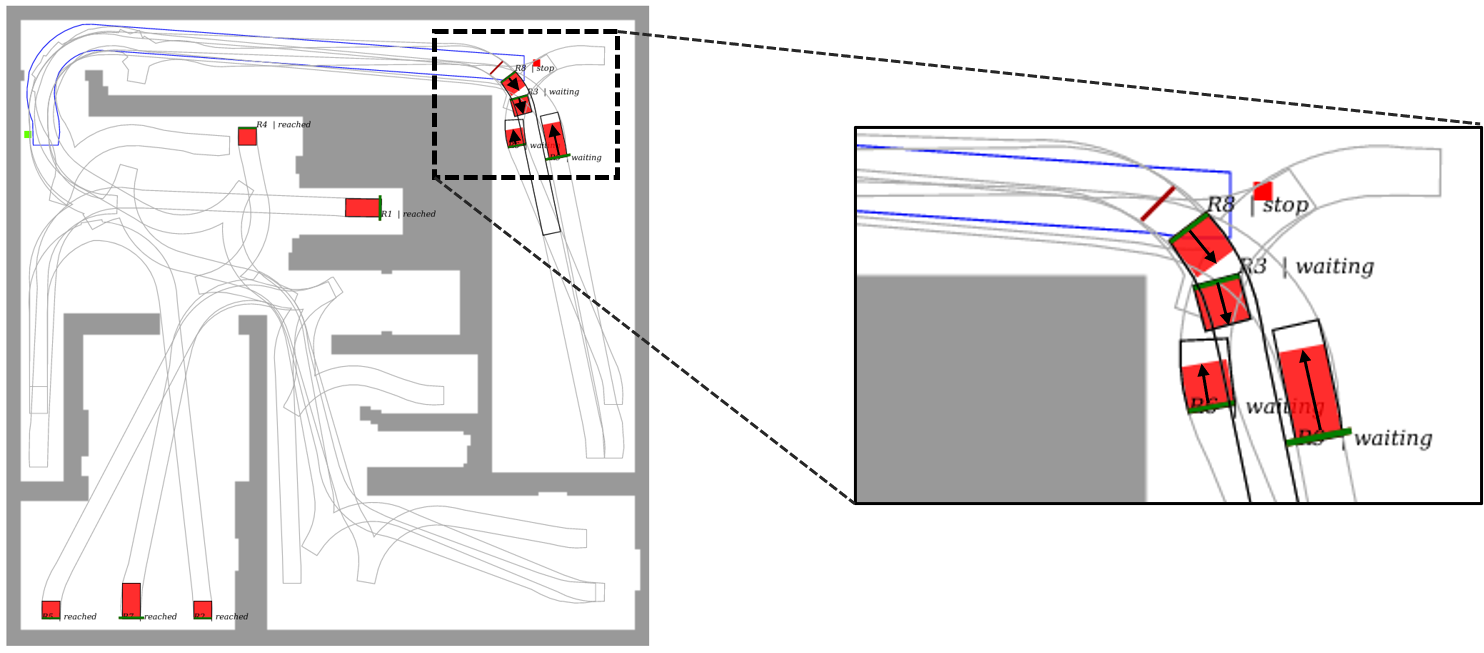
Preliminary definitions for coordination purposes.

We exploit local inter-robot communication to let robots autonomously identify and revise over time some of the future conflicting configurations along their paths, and autonomously coordinate their motions via dynamic, heuristic-based precedence constraints.

Assuming well-formed goals, data locality may cause loss of liveness only due to deadlocks. Locality-induced deadlocks may happen when two robots access a shared region of the environment before being aware of each other due to range-limited communication. We prevent these deadlocks by using local replanning. The robot with lower priority replans its path toward the goal while considering the other robots in its neighborhood as obstacles

Replanning might fail when robots navigate in narrow environments, such as warehouse aisles. To overcome the shortcomings caused by range-limited communication, we exploit a hierarchical solution based on local coordinators responsible for scheduling access to each narrow space.

Nine robots in a realistic environment traveling from initial poses to assigned goals.
